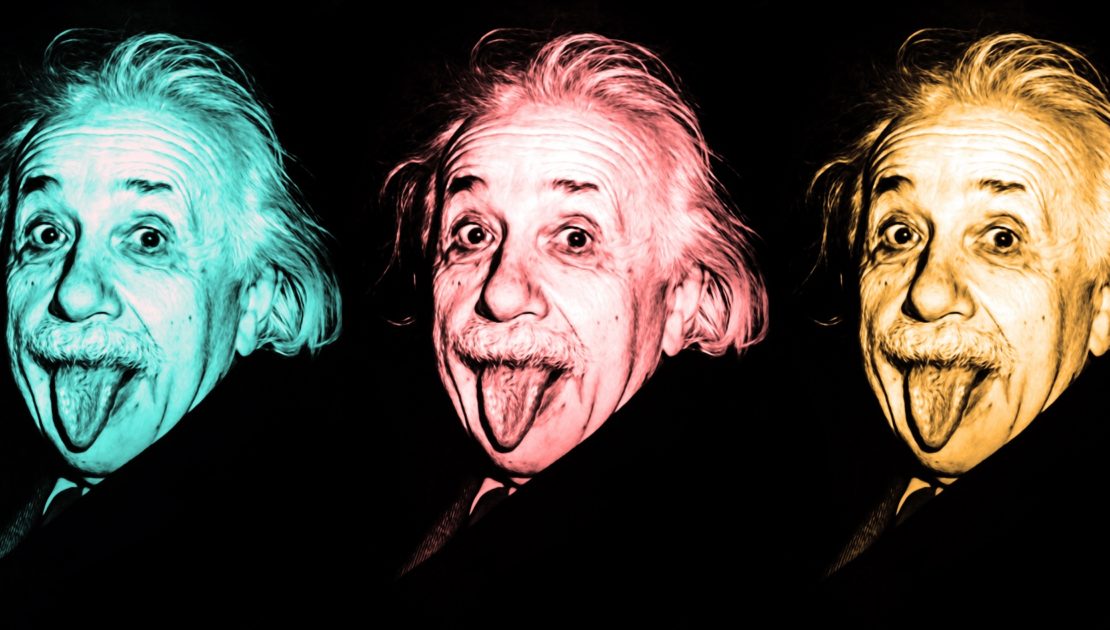Is this the Greatest Albert Einstein Quote Ever?
Is This the Best Albert Einstein Quote Ever?
- April 24, 2019
- Posted by: Joseph Deitch
- Category: Insights, Skills

Albert Einstein is acknowledged as one of the most brilliant minds of all time, and he is credited with a game-changing discovery that has transformed the way we look at the universe.
Not a bad thing to be remembered for.
Yet today Albert Einstein is remembered not only for that most famous of equations (E=mc2) but for the incredible insights he gained and shared, throughout his life – many of which have nothing to do with physics or mathematics. They have to do with a keen intellect and a life well lived.
There are so many Albert Einstein quotes that I love, but one in particular is a prominent part of my book, Elevate: An Essential Guide to Life:
“There are only two ways to live your life. One is as if nothing is a miracle, and the other is as if everything is a miracle.”
As sages have told us and scientists are discovering today, this is a formula for health, wealth, and happiness, not to mention interpersonal and organizational enrichment. Deep appreciation for whatever the universe lays at our feet, regardless of our expectations, relaxes us, opens our hearts and minds, and leads to a natural flow of practical benefits.
Pioneering research has given us a wealth of information about the transformative power of appreciation. In one study by Robert A. Emmons, PhD, of the University of California at Davis and Mike McCullough at the University of Miami, subjects were asked to write in a journal once a week for ten weeks. They were randomly divided into three groups and each group was given one of three sets of instructions:
- List five occurrences from the week that affected you, whether negatively or positively.
- Name five displeasing hassles from that week.
- Describe five things from the week that you’re grateful for.
At the end of the ten weeks, which group do you think was happiest, complained the least about their health, and felt better about their lives as a whole? The one that focused on gratitude. “The practice of gratitude can have dramatic and lasting effects in a person’s life,” Emmons said. “It can lower blood pressure, improve immune function and facilitate more efficient sleep.”
When you change your perspective, even the mundane can become miraculous. You not only see the world differently, you approach it differently. Each moment and every interaction become imbued with importance and appreciation. Even what you’d perceive as “bad” becomes a part of the miracle, and a potential opportunity to learn and grow.
Appreciation is, quite simply, transformative. It orients us toward the positive and makes us feel good.
I can imagine some of you thinking: “Feeling good is fine, Joe… but I’ll really feel good once I’m successful.” Or as soon I solve this issue, or once I leave this job, etc.
There are two issues with that attitude. One: the elation the we equate with most of what we’d call success is temporary. Wins are a short-term fix… there is always another competition. And so the satisfaction we garner is always transient, and a new desire quickly replaces the one we just fulfilled. And, if it’s a problem we’re fixated on, rest assured, our free-floating anxiety will land on the next issue that presents itself. It’s like whack-a-mole, and it never ends
The second: Gratitude not only elicits many of the same pleasurable feelings we ascribe to success – it also helps create success. Psychologists have discovered that positive emotions broaden our minds, allowing us to see more possibilities and pursue options that can be easily overlooked if we’re stressed, frustrated, or depressed. Positive emotions help with all of those issues, according to the Mayo Clinic. In problem-solving experiments, positive emotions generally contribute to better solutions and more successful outcomes over an extended period. And one of the most powerful drivers of those positive emotions is appreciation.
What to feel grateful about? Well, for starters, why not be grateful that you are who you are? If someone told you at some point that you were one in a million, they were greatly underestimating you. In fact, according to Dr. Ali Binazir, you are one in a…. well, the number would take up too much room on the page!
Of course, there are countless things to be grateful for: Not only the people in your life, but specific things about them. Not only what’s happening now, but what’s happened in the past and even things you’re looking forward to. Not only material things, but experiences and moments. Here’s a brief list to spark your imagination.
Of course, you could instead focus on what’s what, what’s missing, where we are inadequate, where others disappoint… it’s a long list! And while it may be periodically practical to identify areas of improvement, focusing on disappointment is not a long-term recipe for happiness. Perhaps that’s why we happy celebrate Thanksgiving every year rather than some holiday called “Life sucks – let me tell you about it”.
Appreciating what we have, instead of focusing on what we think is missing, allows us to get renewed joy out of the people, experiences, and things that surround us. Make the same decision that Albert Einstein made – choosing to see the miracles around you – and the world will open up in ways you’ve never imagined.